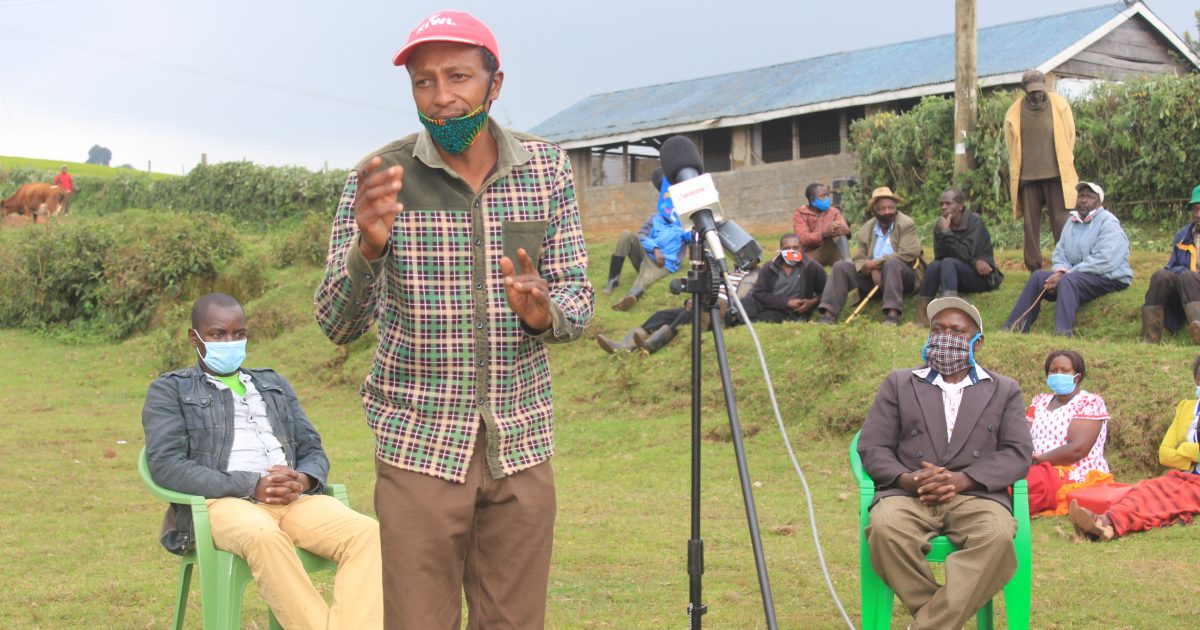A section of tea farmers in Murang’a County have claimed that election of corrupt Board members has contributed to poor earnings from the cash crop.
The farmers on Saturday said that most Kenya Tea Development Authority (KTDA) owned tea factories were run by corrupt board members who have caused farmers to get meagre earnings.
The farmers who spoke during a public participation at Karurumo area of Kangema Sub County argued that the process of electing board members was not democratic and those who got elected use a lot of resources to bribe farmers.
They noted that after being elected to office, the board members usually opt to engage in corrupt deals to recover money spent during electioneering.
The farmers said they were fully behind the new tea reforms being championed by Ministry of Agriculture which would take the sector to the next level of profitability.
They faulted KTDA for moving to court seeking to block implementation of proposed new regulations, saying the agency was trying to frustrate any effort that would see farmers earn more from their produce.
The farmers said they wanted a one grower one vote voting system as opposed to the current one where the weight of a vote was dependent on the amount of tea a farmer harvests.
One of the farmers, James Kaguyu observed that they have made a decision to fight for their tea and ensure all illiterate tea growers were enlightened and sensitized on the new tea regulations.
“For long time, we have been in the dark, we do not get relevant information about trading our tea but this time we are determined to follow each procedure so as to know where our money gets lost to,” stated Kaguyu
He alleged that farmers were not allowed to ask questions during factories’ annual general meetings.
Joseph Mwangi, a tea technician, also noted that majority of the issues facing the tea sector stemmed from elections.
Mwangi further noted that many countries have reduced the cost of production by allowing the use of machinery in tea harvesting.
Locally, however, farmers were forced to incur extra weeding and pruning costs and hire harvesters who were paid Sh.12 per kilo.
Mwangi said local factories strictly required farmers to pick two leaves and a bud, and that farmers were harassed by factories’ clerks who made them sort their tea repeatedly in buying centres over claims of exceeding the required leaves.
Phillip Mbui said they wanted 50 percent of their pay released monthly while 30 percent goes towards factories’ operations and another 30 percent retained as the annual bonus.
Mbui said having half of their money paid monthly would help farmers plan their lives better and save them from enslaving loans.
Wanja Michuki, a member of the eight-member steering committee on the implementation of tea regulations observed that the monopoly enjoyed by KTDA in the provision of management services to small holder tea factories disadvantaged farmers.
She said allowing competition in management services would provide a platform for companies to compete on prices, reducing the cost of production for farmers.
Wanja also noted that factories could partner to procure farm inputs for their farmers and benefit from economies of scale.
She said farmers should also be able to elect directors who could help factories create strategies that could help improve their earnings without having to refer to the managing agency which she said diminished the factories’ independence.
“We also need to separate the two functions. The board is one thing while the managing agent is another and farmers are factories’ shareholders,” she noted, adding that farmers should have proper ownership of the factory as they have share certificates.
Wanja underscored the need for reforms being introduced by the government, saying they were extremely progressive and even recognized the role of women by ensuring a third of the board of directors were female.
By Bernard Munyao





